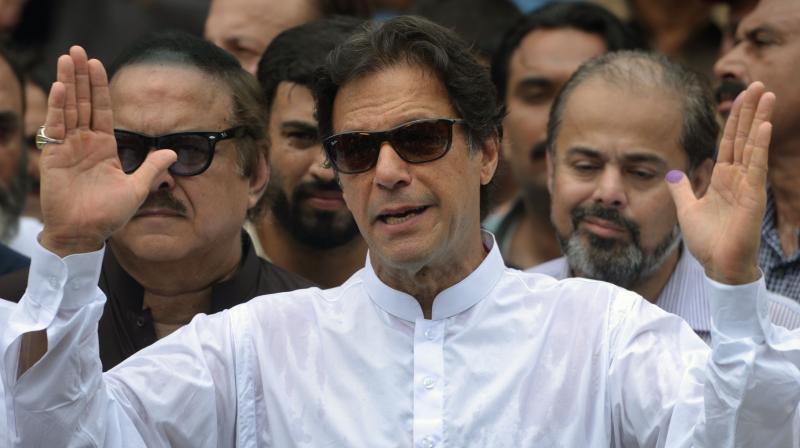Quiet steps by India, Pak needed
The European Union is an example used by many an optimist to suggest that a rosy future awaits Pakistan and India.

With the opening of the Kartarpur Corridor, Prime Minister Imran Khan has been handed a diplomatic victory in his first 100 days, which beats his domestic score card hollow. But there are few who are willing to see this as a game changer in the stalemate that has been India-Pakistan relations in recent years.
The PM, of course, put a more optimistic spin on it. In his speech at the ceremony, he brought up the old rivalry between Germany and France to illustrate that hope springs eternal.
In this, he is not alone. The European Union is an example used by many an optimist to suggest that a rosy future awaits Pakistan and India. But can the subcontinent follow the European example? The European Community as we see it was a long time coming, and continues to remain a work in progress. It is important to recall how it began.
The first effort after the Second World War came in the shape of the European Coal and Steel Community (ECSC) in 1951 and included six countries including France and Germany. And while it did expand trade between the member countries, it is not seen as a complete success. Its greatest achievement is seen as laying the foundation for greater cooperation and the Treaty of Rome, which established the common market for the member states.
Still, even the ECSC cannot be seen in isolation. It went hand in hand with Nato and the Marshall Plan which also encouraged European cooperation. But more than that, perhaps the world wars were the biggest motivating factor behind the ECSC.
Washington made it clear at the end of the Second World War that its aim was an independent Germany. For France, this meant that it had to rethink its past policies of invading German territory to ensure French security as had been done after the First World War. It now needed a new strategy — the alternative was the ECSC to ensure Germany could not use its steel and coal to build another “war machine”. In fact, after the end of the Second World War, the coal-dominated German region had been placed under an international body established by the allied powers, which was later replaced by the ECSC.
In other words, the idealistic idea of a united Europe was born of the necessities of realpolitik. There was some domestic opposition — Charles de Gaulle was an opponent of the ECSC. In Germany, political parties which aimed at a united Germany were against the community as they felt it pushed West Germany towards Europe.
And let’s not forget the biggest realpolitik reason of all — the threat from the Soviet Union, which is also seen to have provided an impetus to bringing the European countries together.
In the subcontinent, at present, there are few parallels to draw — no outside external threat; no superpower assistance for larger cooperation; and, especially, no debilitating war which could have put paid to aggressive ambitions against one another’s enemies.
Here perhaps we have a slower process at work — an increasing realisation (especially on the part of Pakistan) of the need for peace for economic growth.
A dispute such as Kashmir may have to become irrelevant before it can be resolved. This is to say that perhaps we shouldn’t look for a repeat of the Musharraf approach — to address Kashmir first.
As for the baby steps that can be taken, the film and cinema industry is a case in point. The cinema theatre industry in Pakistan would not have revived had the exhibition of Indian films not been allowed. Once the Indian films were exhibited, investors found it profitable to establish cinema theatres. The availability of cinema theatres in turn allowed local film-makers to make films. And this led to the rebirth of the Pakistani film industry.
In fact, when Indian films were banned from cinema theatres towards the end of 2016 due to Pakistan-India tensions, it didn’t last long. The losses the cinema theatre owners faced necessitated a change within months. This is one example of a peace constituency.
Is it wrong to assume that there can be more such examples of cooperation and trade? Small and unnoticed ones that quietly build up constituencies of peace? (Ideally, even Kartarpur should have been a quiet step so that it didn’t turn into a point-scoring exercise between the two rivals.) The power of quiet should never be underestimated.
By arrangement with Dawn

